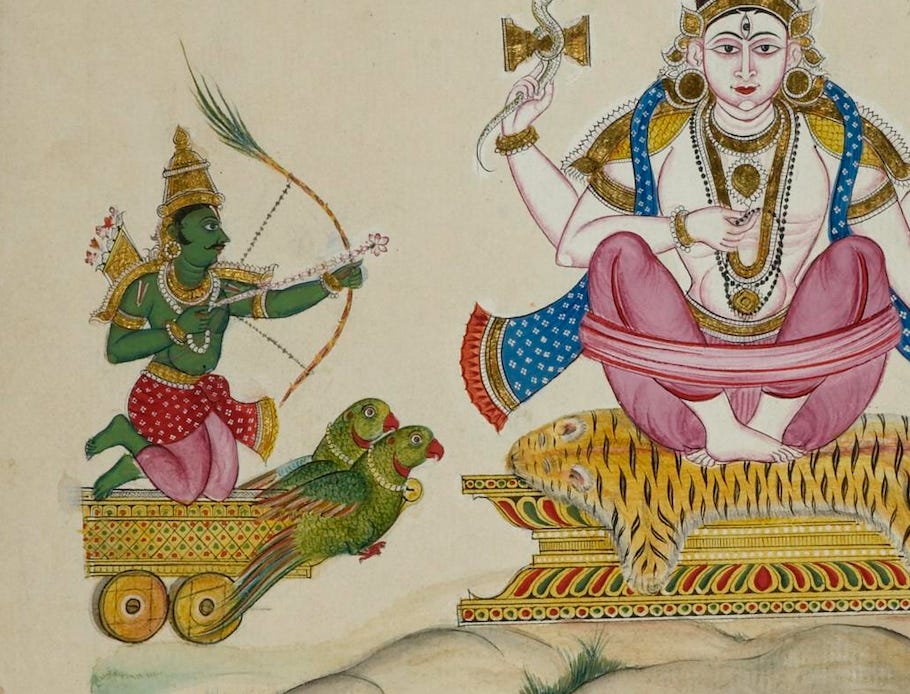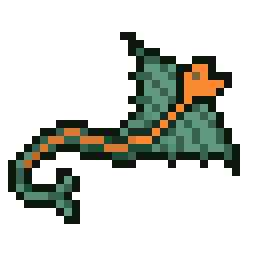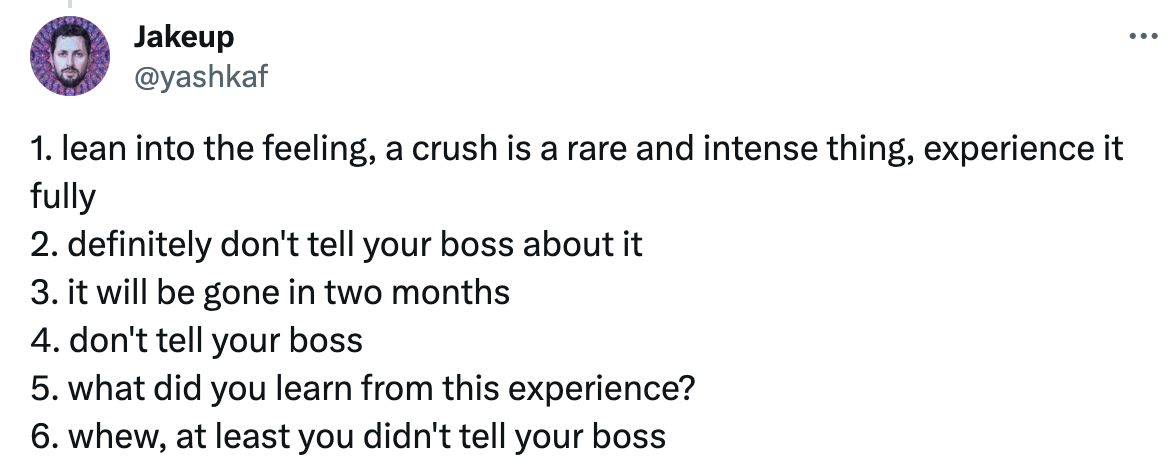
I spent some of my free time this winter playing the retro-style farming simulation game Stardew Valley. I didn’t want to play it at first, because I knew I would become addicted. I always get addicted for a few weeks whenever I play a good game. But then my partner bought it on the Switch and I saw him manage his little farm in the little idyllic village of Pelican Town, and I quickly succumbed to the temptation. In what I thought was a clever hack to make the game less fun and therefore spend less time on it, I decided to set the game text to Spanish, a language I understand only about 50% of. The tedium of having to translate much of the game text, I thought, would disincentivize me to play.
It didn’t work. But at least I learned a lot of Spanish! Which might come in handy very soon, since I happen to be flying to Spain for a vacation later today.
Anyway, almost none of this — with one exception — is relevant to the topic of today’s post. It is Valentine’s Day, so I am writing about love. More specifically one kind of love, the early, unstable version that goes by many names: infatuation, limerence, being smitten, or my favorite, this weirdly tactile, textured word — the crush.
One of the fun features of Stardew Valley is that you can date and marry some of the non-player characters who live in the town. You get to choose among 12 single men and women (you can actually date all 12 if you want, but you can only marry one at a time). I picked one of them to court, and brought him gifts, and viewed some cute cutscenes, and then had a wedding in the village square; and now I have a little pixellated husband who does almost nothing but walk around the pixellated farmhouse and repeat the same few lines of dialogue over and over again. I want to emphasize that Stardew Valley, like probably all games that incorporate romance, has an extremely simplified model of relationships. And yet.
And yet, there was a time, a brief time, when I noticed I had developed feelings for this little pixellated husband who does almost nothing. It’s ridiculous and frankly I’m not sure how I feel about writing this here in a public blog post.1 But it’s a thing that happened, so it’s worth writing about.
It’s also not the first time something like this has happened. I played The Sims 3 exactly once, about twelve years ago. In The Sims you follow the lives of one to a few virtual people, and you can also, of course, see them develop relationships between them. I wasn’t in a simulacrum of a relationship with my main character, but I do remember sort of having a crush on him, for a brief time. I had a strong desire to play the game not only because it was fun and addictive, but also because I could hang out with this virtual guy.
After I was done with that particular game, I decided that I wouldn’t play The Sims ever again. Something felt wrong. Games can be addictive, that’s fine and expected, but should they make you addicted by giving you crushes?
Today I don’t think this was or is very worrying. None of my crushes for video games characters were strong or lasted long, since they weren’t about real people. There was no depth to the relationship. In fact there wasn’t anything remotely resembling a relationship. And that’s exactly what’s interesting about this sort of situation: I realized that it really doesn’t take much to start feeling romantic attraction. It doesn’t even require an actual person! Just the thin illusion of one.
It doesn’t take much to feel romantic attraction, but conversely those feelings have tremendous power. Okay, I recognize this is just about the most vapid thing I could write — of course love is powerful. But we usually mean this as just another cutesy saying. I propose that it can also mean that love is a literal source of energy.
Having a crush puts you in a very particular state of mind. There is a sort of lightness to everything, combined with a deep sense of yearning. Suddenly anything that involves the object of the crush becomes very easy to do. (This is slightly dangerous with video games characters, maybe, since playing the game is usually already quite easy!) You need less sleep; you suddenly find time to accomplish many of the imperatives of daily life in a way that isn’t tedious. Maybe it becomes suddenly easy to exercise, or learn to cook, or improve your personal aesthetic, or floss.
In the ideal case, i.e. when you’re single and the object of the crush is also available and interested in you, the energy gets released in a productive way: pair-bonding and eventually relationship-building. (Which generally begets more energy, sometimes called “new relationship energy.”) But most crushes don’t work out that way. Many are impossible to satisfy for all sorts of good reasons, for example because the object of the crush isn’t a real person, or because either you or they aren’t available. Yet the energy won’t just dissipate, at least not for a while. What then?
Then you can suffer in silence — or you can learn to harness the energy.
Take a recent discussion of someone struggling with an intense crush for their their (married) boss. This can, of course, be a problem. For the person who asked for advice, it was. As most people involved in that discussion pointed out, it would probably be a terrible idea, perhaps even an unethical one, to tell your married boss that you have a crush on him. And therefore the crush, being unsatisfiable, can becomes a weight. A burden.
But it doesn’t have to! Instead you can exploit the crush! And at work, that seems particularly straightforward: impressing your boss is something you want to do anyway. Thus:
Or, like my mutual Leon said in the tweet just above the screenshotted tweet,
you need to sit with your frustration and angst and whip yourself up into an emotional frenzy and then channel it all into cleaning data for 18 uninterrupted hours
(this is, one assumes, a joke, but not an entirely unserious one)
I’ve been collecting some of my favorite responses along these lines, such as this, by Jakeup:
lean into the feeling, a crush is a rare and intense thing, experience it fully
Or Matt Bateman:
One can do many enjoyable, healthy things with a crush, including keeping it to oneself
find a way (any way! get creative) to enjoy it
let the sexual tension ignite you FOR YOU
view boss as your sexy muse
have fun in yourself. keep everything plausibly-deniable
Indeed! When a feeling with such intensity, such potential for energy release, comes to you, you might as well view it as a great, awesome force that can move mountains, and make the most of it.
Like all awesome forces, it is, of course, dangerous. Often, releasing the energy in the way it is meant to (i.e., courting the person) can lead to disaster. In the case above there is risk of ruining professional opportunities and making oneself miserable at work. In another, more common scenario, that of having a crush on someone new while you’re already in a relationship that you don’t want to destroy, the risks are even more salient and important. (I know — I messed up in such a situation once, and I am often thankful that the damage turned out to be repairable.)
Regardless, it seems misguided to just… pretend that the crush isn’t there, or that crushes can’t happen in inappropriate circumstances. If they can happen with dumb dimensionless fictional characters, of course they can happen at the most unexpected of times, with the most unexpected of people. And if a crush happens in an unexpected place, you’ll need to deal with it somehow.
You’ve been handed a dangerous bar of radioactive plutonium. Are you going to let it give you thyroid cancer? Are you going to bury it somewhere and forget about it? Or will you hook it up to a nuclear reactor and use the energy to transform your life, your job, your current relationship, for the better?
(Relatedly, I want to mention a topic that I’ve long thought is underdiscussed, although I won’t discuss it other than obliquely, because there are reasons it is underdiscussed: the fact that we can exploit the erotic for good, too. Eros is a strong god, one whose power has ruined many lives; but such power is also able to transform lives for the better in all sorts of ways, and not just ways that are directly related to sex. That seems far more healthy than trying to repress its power. But there ever is an awkwardness around public discussions of such a topic, and so practical methods to harness that power shall be left as an exercise to the reader.)
Despite what I just said on crushes happening unexpectedly, we can still exercise some degree of control on how much we expose ourselves to them. For instance, if you are in a relationship that you don’t want to endanger, you can try to avoid social contexts where we are likely to meet attractive single people of the appropriate sex. Or you can learn to notice the early signs and stop talking to an acquaintance you suspect you might develop a crush for.
This is a safe way to live. It is a good one? I don’t know. I suppose it very much depends on the person. There is definitely a sense in which it seems sad to renounce the energy that a crush, even an unsatisfiable one, can give you. But then some people might be unable to handle the plutonium bar and be wise to avoid all situations in which they could be given one.
And here we loop back to fictional characters, whether in video games or romance novels2 or blockbuster movies. Those offer a compromise: a way to occasionally feel the great energy of crushes without much risk to your life and relationships. At the cost of, well, not being quite real.
The obvious extension of such a topic is the recent rise of AI girlfriends and boyfriends. Quite frankly, I don’t know what to think about them. I, like everyone else, am a bit spooked by examples of people feeling actual emotional distress because their virtual girlfriend is sad or, worse, has been deleted.3 And of course it’s likely to get weirder and weirder as AI companies manage to make ever-more believable simulacra of relationships. This is getting quite far from my little Stardew Valley husband made of a few dozen pixels and as many lines of dialogue.
But there is an optimistic case, which is that these… products? beings? can provide some of us with crush energy that we can put to productive uses. Is that likely to counterbalance any dangers that they pose? I have no idea.
Here, too, the effects depend on the person: are you able to play with your feelings and harness their energy, or not?
I suspect that is a fundamental question for happiness in general. I’ll ponder it as I travel to Spain for a Valentine’s Day vacation with my partner, for whom I do not exactly have a crush, but a wholly different, wholesome kind of love — but that’s a topic for another time.
It helps that cursory research reveals just how many people are obsessed with their Stardew Valley spouse, to the point of creating various game mods to deepen their experience with them.
I’ve been debating having a part about how gender affects our perception of crushes. For instance, it’s commonly held that women are more attracted to romance novels because their fantasies are often about romance more so than sex (while men are attracted to more direct pornography). I’ve also read that polyamory is more often a female desire than a male one; polyamory can be seen as a way to allow oneself to satisfy more crushes than otherwise possible. So possibly women care more about crushes than men. But it’s also quite clear that everyone gets intense crushes, so my guess is that whatever differences there are don’t matter that much. And this whole essay is written from the perspective of a gay man — which if probably closer to the perspective of a straight man than that of a straight woman, but possibly different in a few meaningful ways. All of this is to say that I think I’m writing something that generalizes to people of all genders and sexual orientations, but it would be reasonable to disagree.
See e.g. this thread on memes about Replika virtual girlfriends












On harnessing eroticism, one of the first thing your post reminded me of was, in fact, a comment, maybe on astral codex ten, by someone who reported trying to give a "prosocial" bend to his fantasies: instead of just dreaming of boning a nondescript beauty, he'd set up a context where his ideal behaviour would be rewarded: "l just crunched out my work like a beast, I leave my boss office where he just congratulated me, and I immediately seduce the secretary, and we go wildly on the desk", this kind of things.
I have no idea if that works, but it's a fun idea imho.